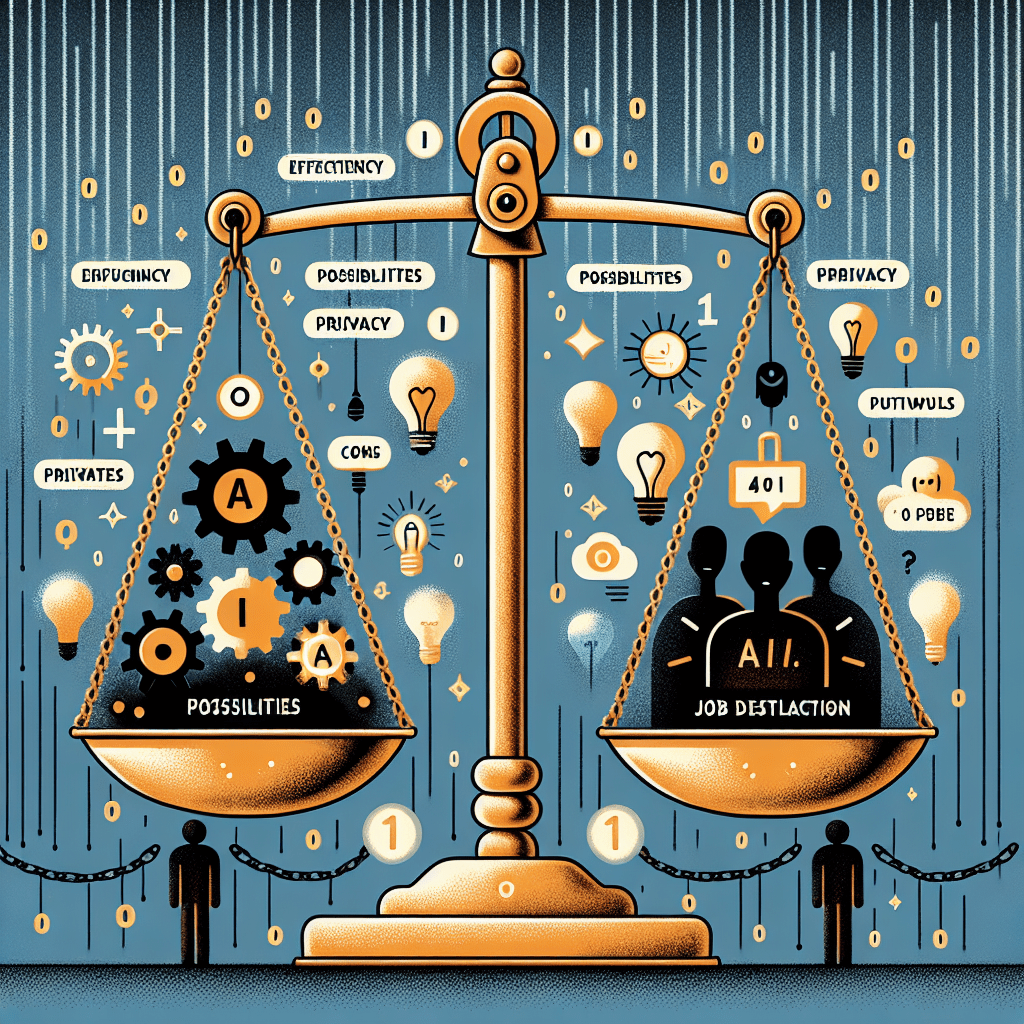Artificial Intelligence (AI) software has become increasingly pervasive in today’s digital landscape. From virtual assistants like Siri and Alexa to predictive analytics tools used in business operations, AI software is revolutionizing the way we interact with technology. In this article, we will delve into the benefits and drawbacks of AI software, exploring its potential impact on society and the economy.
The Benefits of AI Software
AI software offers a wide range of benefits across various industries. Here are some of the key advantages:
1. Increased Efficiency
AI algorithms can automate repetitive tasks and streamline workflows, enabling businesses to operate more efficiently. This can lead to cost savings and improved productivity.
2. Data Analysis
AI software can analyze vast amounts of data quickly and accurately, providing valuable insights that can inform decision-making processes. This can help businesses identify trends, detect anomalies, and optimize operations.
3. Personalization
AI-powered algorithms can personalize user experiences by tailoring content and recommendations based on individual preferences and behaviors. This can enhance customer satisfaction and loyalty.
4. Predictive Maintenance
AI software can predict equipment failures before they occur, allowing businesses to proactively schedule maintenance and avoid costly downtime. This can increase the lifespan of assets and reduce repair expenses.
The Drawbacks of AI Software
While AI software offers many advantages, it also poses certain risks and challenges. Here are some of the drawbacks to consider:
1. Job Displacement
AI automation has the potential to replace human workers in certain tasks and industries, leading to job displacement and economic uncertainty for workers. This can exacerbate income inequality and create social tensions.
2. Bias and Discrimination
AI algorithms can inadvertently perpetuate bias and discrimination if they are trained on biased data or designed without proper oversight. This can result in unfair outcomes and reinforce existing inequalities in society.
3. Data Privacy
AI software relies on vast amounts of data to operate effectively, raising concerns about data privacy and security. If not properly managed, sensitive information can be exposed to unauthorized parties, leading to breaches and identity theft.
4. Lack of Transparency
AI algorithms are often opaque and complex, making it difficult to understand how decisions are made. This lack of transparency can erode trust in AI systems and hinder accountability for their actions.
Conclusion
AI software holds great promise for improving efficiency, personalization, and predictive maintenance across various industries. However, it is crucial to address the potential drawbacks of AI, such as job displacement, bias, data privacy, and lack of transparency. By implementing ethical guidelines, regulatory frameworks, and ongoing monitoring, we can harness the benefits of AI software while mitigating its risks.
FAQs
Q: How can businesses mitigate bias and discrimination in AI software?
A: Businesses can mitigate bias and discrimination in AI software by implementing diverse and inclusive training data, conducting regular audits, and involving diverse stakeholders in the design and testing process.
Q: What role does government regulation play in the development of AI software?
A: Government regulation can help ensure the ethical and responsible deployment of AI software by setting standards for transparency, accountability, and data privacy. Regulations can also promote fair competition and protect consumer rights.
Quotes
“AI is like a rocket engine, capable of propelling us to new heights when used wisely, but dangerous if mishandled.” – Elon Musk
#Exploring #Benefits #Drawbacks #Software #Comprehensive #Guide


